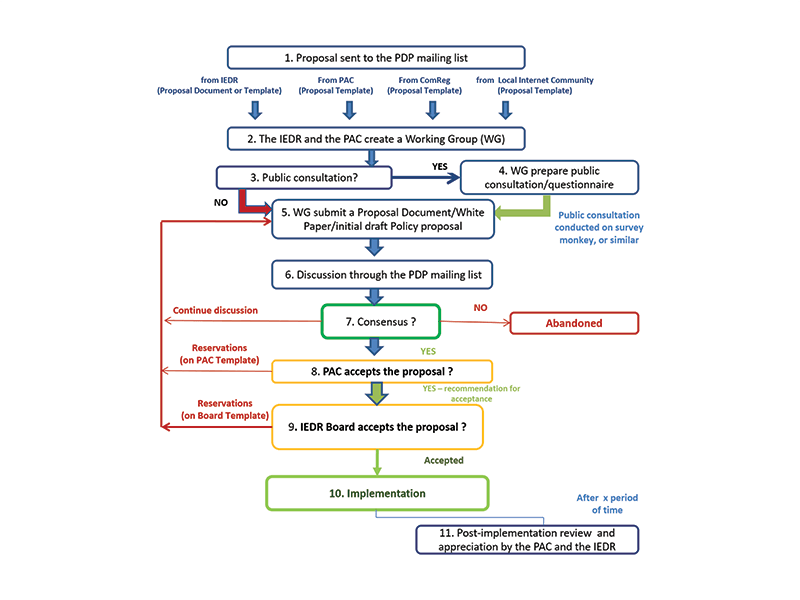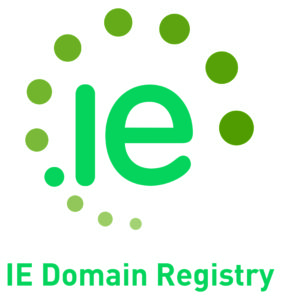Successes of the .ie Policy Advisory Committee

Since its inaugural meeting in 2015, the .ie Policy Advisory Committee (PAC) has been instrumental in the evolution of the .ie namespace – Ireland’s national internet domain. David Curtin, Chief Executive of the IE Domain Registry writes.
The PAC’s achievements can be attributed to three critical success factors:
- a multi-stakeholder policy advisory committee (PAC);
- a structured policy development process (PDP); and
- an effective PAC modus operandi.
The PAC’s achievements are significant. It has reviewed 14 policy change requests to enhance the .ie namespace (11 of which were implemented following consensus for the changes amongst the .ie stakeholders represented).
The PAC has held four public consultations to capture the opinions of the wider Irish internet community (including the public), and to ensure that these are taken into consideration during the policy development process. Furthermore, the PAC has held four additional consultations with targeted stakeholders deemed to be most impacted by the relevant policy change request to ensure their input is considered.
A further milestone for the PAC relates to its crucial role in aiding the .ie namespace’s compliance preparations for the EU General Data Protection Regulation in 2018. It oversaw a policy change request for modifications to a suite of Policies which ensured continued compliance with local and international data protection laws. Of particular note is the fact that this work was undertaken and completed prior to the publication of the Data Protection Act 2018, and before international best practice within the wider domain industry had emerged.
How has this been achieved?
1. A multi-stakeholder PAC
Collaborative engagement
The cohesive working nature of the PAC membership has been crucial to its success. The stakeholders represented on the Committee dedicate considerable time and effort to the PAC’s work, and members are committed to enhancing the .ie internet infrastructure for the benefit of Ireland Inc.
The membership works collaboratively, on a volunteer basis, typical of internet governance models.
The PAC convenes face-to-face on a quarterly basis to advance the various policy change proposals under review. Further engagement between meetings is facilitated by means of conference calls and via a dedicated mailing list to maintain momentum in discussions.
Multi-stakeholder co-operation
The PAC membership is truly multi stakeholder, with representatives from government, business and the domain name industry. The mix of public policy professionals and practitioners from the sales channel and industry associations working together to meet a shared goal of enhancing the .ie namespace is an example of multi stakeholder-ism at work.
The PAC capitalises on the diverse expertise and experience within the membership to thoroughly evaluate the multi-faceted considerations associated with each policy change proposal. These considerations include public policy, consumer protection, commercial impacts from the perspective of industry practitioners, and international best practice within the online world.

Clear terms of reference
The clear and precise terms of reference, which acts as the rulebook for the PAC’s operations, is the foundation upon which is built the trust and cooperation between industry stakeholders and the board of IE Domain Registry (registry operator). The policy development process, modelled on industry best practice, is another important foundation. A strong Chairman completes the tripod, ensuring the seamless operation of the PAC.
2. A structured policy development process
The PAC considers policy change requests using a defined framework — the 10-step policy development process, which was developed in 2011. This framework provides the opportunity for interaction between the stakeholders, the IEDR board, end users and channel operators. Including a public consultation step (when considered necessary) gives the opportunity for participation by consumer protection agencies, the general public, and interested public policy experts. It provides for an iterative approach in developing solutions.
Working groups
Working groups are formed when the issues are complex or require research and documentation in order to discuss and develop competing alternatives — on policy or on implementation options. Working group membership can include guest speakers and non-PAC personnel who are subject matter experts.
Secretariat support
The Secretariat has been instrumental in driving the successes of the PAC since its formation. This is an essential component, in our experience. An expert and professional Secretariat leverages the ideas and experience of PAC members, builds momentum and presses the group to achieve its deadlines.
3. An effective PAC modus operandi
The PAC modus operandi is a bottom-up process, is consensus driven and is transparent:
Consensus driven
A key success factor thus far has been the drive and ability to build broad consensus among the stakeholders represented on the PAC. Avoiding the need for a unanimous decision allows progress to be made where there is strong consensus. The PAC adopts an iterative approach; attempting to address potential issues in the policy proposal and also in the proposals for its implementation. Addressing these issues and concerns up-front in this manner avoids problems with subsequent implementation.
Bottom-up (not top-down)
The bottom-up approach ensures that the needs of users are first and foremost. Policy changes and new policy proposals can be submitted by any interested party; by the PAC members, by government, by the general public. Top-down imposition of policy is not an appropriate modus operandi for the .ie namespace given its important cultural and business value to the Irish internet community as a national resource.
Transparent
Transparency has been fundamental to the PAC’s successful operations. There are open lines of communications directly to the PAC that can be utilised by any interested party. Furthermore, the decision-making process is always comprehensively documented at each meeting in the minutes, which are made publicly available online, at https://www.iedr.ie/p30/policy-development/.
The Policy Advisory Committee is currently enhancing the options for disputing a .ie domain registration with the planned introduction of the .ie Alternative Dispute Resolution Policy. Ensuring “Fair Play and a Fair Hearing”, the easier and more affordable online dispute resolution process will be introduced on 1 July 2019. It will be managed by an independent service provider and will include a mediation option for the complainant and the domain holder.
For more information please visit www.iedr.ie.






